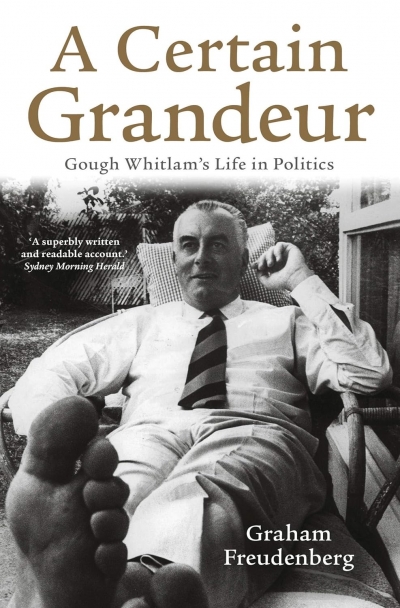Australian Prime Ministers
The Young Menzies: Success, failure, resilience 1894–1942 edited by Zachary Gorman
by David Horner •
A Certain Grandeur: Gough Whitlam’s life in politics by Graham Freudenberg
by Jenny Hocking •
John Howard: Prime Minister by David Barnett and Pru Goward
by Joe Rich •
Malcolm Fraser On Australia edited by D.M. White and D.A. Kemp
by James Walter •




